There are many ways to microdose weed, from smoking to edibles to tinctures. Learn the pros and cons of different cannabis microdosing methods.
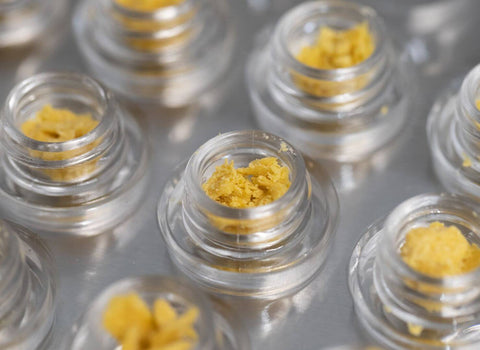
Cannabis legalization is on an upward trajectory in the US. Adult recreational cannabis use is growing. As a subset of cannabis consumption, microdosing is gaining increasing attention.
You may have heard the term microdosing, but you aren’t sure what exactly it means and how it applies to cannabis products. We’ve created a guide to microdosing cannabis to cover all the basics.
Let’s look at methods for microdosing weed.
What Is Microdosing?
Microdosing is the practice of taking small amounts of a substance that is normally taken at higher volumes. Microdosing weed means you consume just enough cannabis to get sub-psychotropic effects of THC.
For those who are new to cannabis, or who are looking for an alternative to traditional methods of consumption, microdosing may be the perfect solution.
When it comes to cannabis, microdosing allows adults to enjoy the benefits of the plant without feeling overwhelmed or experiencing any negative side effects.
For example, someone who microdoses Delta 9 THC may experience relaxation and focus without the cognitive changes that accompany a larger dose.
Microdosing is also a great way to enjoy the flavor and smell of different strains of cannabis without consuming too much.


THC: 10 mg | CBC: 10 mg | CBD: 10 mg | CBG: 5 mg | CBN 5mg
Methods of Microdosing Weed
Microdosing weed involves taking smaller doses than the average recreational dosage. There are several popular ways of doing so. The best methods allow you to measure and quantify your THC intake.
THC microdosing methods include oils, tinctures, capsules, and edibles—not to mention the classic method of smoking weed.
Smoking Cannabis
Smoking weed is not a great microdosing method, because it’s really hard to measure just how much THC you’re taking in.
If you’re going to try smoking for microdosing, take a single puff and notice how you feel. If you notice mental changes, you probably went beyond a microdose. If not, you probably got a microdose. A vape device may help you titrate your dosage with smaller puffs.
Finally, some people choose to roll their own “microdoses” by mixing a small amount of marijuana with regular tobacco. This method isn’t ideal because of the negative health effects of tobacco.
Drinking Cannabis
Cannabis-infused drinks provide a discreet and convenient way to enjoy the benefits of THC, and they can be easily tailored to each individual’s desired dosage. Plus, THC drinks make a great alcohol alternative and can be shared in a social setting.
For those who are new to cannabis or looking for a milder experience, our Buzz Drops drink mix is a great option. Each serving has 2mg of Delta 9 THC and 20mg of CBD for the perfect entourage microdose. Want a stronger microdose? Double up for 4mg of THC.
Check our our guide to the relative benefits of drinks vs edibles to compare which form of Delta 9 THC consumption might be right for you.
THC Edibles
Edibles are consumable products (gummies, chocolates, etc) that contain THC. They usually also contain CBD, a cannabis compound that does not get you high but offers medical benefits. Often, they contain other, more rare cannabinoids like CBN, CBG, and THCV—all of which contain unique medicinal and recreational benefits.
Our Delta 9 edibles allow for very precise microdosing. Depending on the desired dose, you could opt for:
- Our Energy Gummies in blood orange flavor: 2.5mg of Delta 9 THC and 5mg of CBD
- Our Sleep Plus gummies with melatonin: 25mg of CBD, 2mg of Delta 9 THC and 3mg of melatonin
- Our Relax Plus gummies: 5mg Delta 9 THC and 25mg of CBD
- Our Bliss Gummies: 5mg of Delta 9 THC and 5mg of CBD
- Our Euphoria Strawberry Gummies: 10mg of Delta 9 THC and 10mg of CBD
- Our Euphoria Sour Gummies: 10mg of Delta 9 THC and 10mg of CBD
Because edibles are metabolized differently than smoked cannabis, they offer a much more subtle and controlled experience. Starting with 2.5 to 5mg is great for beginners, and you can increase the dose by 2.5mg until you feel you’ve arrived at the perfect dosage (typically, no more than 10mg).
Cannabis Tinctures
Cannabis tinctures are a popular and convenient way to consume THC. Tinctures are typically sold in 15 or 30 milliliter (mL) bottles, with varying THC concentrations depending on brand. The key to understanding tincture dosing is noting the serving size, which is typically 1mL of oil, or one full dropper.
To microdose a tincture accurately, you’ll need to find or calculate the following:
- How many drops are in one mL of tincture
- The THC concentration of one mL of tincture
- The first two metrics will allow you to calculate the amount of THC in each drop
Microdosing with a tincture, as you can see, is much more complex than with edibles.
The Effects Of Microdosing Weed
The effects of microdosing weed are still being researched. A growing body of cannabis science indicates that small doses of THC may have positive effects. THC, CBD, and other cannabinoids interact with our body via the endocannabinoid system, a network of neurotransmitters and receptors that help govern all sorts of bodily functions.
Phytocannabinoids (cannabinoids from plants, specifically cannabis) such as THC and CBD can mimic our body’s own endocannabinoid neurotransmitters. In so doing, they may alleviate symptoms of certain autoimmune diseases, alleviate chronic pain, and lessen the occurrence of depression and anxiety.
Microdosing weed may help to improve our body's response to stress and disease by providing it with the cannabinoids it needs to function optimally.
Dosing Range For Weed
Marijuana is still illegal at the federal level, making it difficult to conduct scientific and medical studies on THC consumption. Because of this, there is little information about cannabis dosage that consumers can use to find the proper THC dosage for themselves.
We’re here to alleviate the information shortfall.
What Is Considered a Microdose of Weed?
Most people who microdose cannabis take between 2.5 to 10 milligrams (mg) of THC. Our Bliss Gummies contain 5mg of American-grown Delta 9 THC, and a single gummy is the perfect dose for most cannabis microdosers.
It is also important to keep in mind that the effects of cannabis can vary depending on the strain and method of consumption. So, if you are microdosing cannabis for the first time, it is always best to start with a low dose and increase as needed.
What Is a Low-Dose Product?
Low-dose THC products are products that contain a small amount of THC, typically no more than 10 milligram of THC per dose. These products are often used by people who want the medical benefits of THC without the high.
All our THC gummies and other edibles are considered low-dose cannabis products and comply with the stipulations of the 2018 Farm Bill. In other words, our edibles are Federally legal.
An ultra-low dose of cannabis is considered anything less than a milligram of THC; the most common low-dose products, such as our Energy Gummies, contain 2.5 mg of THC per serving.
Why Use a Low-Dose Product?
Microdoses of THC are often more beneficial than high doses. Counterintuitive as it seems, THC can help some conditions (such as depression) at low doses while making them worse at high doses.
High doses of THC can produce unwanted side effects such as anxiety, paranoia, and compromised motor function. Low-dose products, in contrast, are safe and free of negative side effects. Additionally, microdose products are less likely to result in cannabis dependence or addiction.
Low-dose THC products, such as our Delta 9 THC gummies, offer a safe, convenient, and precise way to microdose cannabis.
Should You Add CBD When Microdosing Cannabis?
When it comes to microdosing cannabis, many people focus on THC. However, adding CBD, CBN, and other cannabinoids to the mix can invoke the so-called entourage effect, said to produce greater benefit than any single cannabinoid used in isolation.
CBD, THC, and other cannabis compounds work together synergistically. This means that the compounds have a more powerful effect when they are combined than when they are used individually.
Additionally, CBD is known to counteract the psychoactive properties of THC. So, if you are worried about potential side effects like anxiety or paranoia, adding CBD to your microdose can ease those concerns.
THC and CBD are two of the most well-known and well-studied cannabinoids found in cannabis. Both THC and CBD interact with the body's endocannabinoid system, but they have different effects. See our guide on the differences between CBD and THC to understand these cannabinoids further.
Ultimately, whether or not you add CBD to your cannabis microdose is a personal decision. But if you are looking for a more potent effect or want to avoid the psychoactive effects of THC, then it may be worth considering.
All of our THC edibles contain CBD and other compounds, so you’re always getting the entourage effect when you shop with nama CBD.
How To Microdose Weed For The First Time
If you're about to microdose marijuana for the first time, there are a few things you need to know.
First, start with a very low dose (around 2.5mg or even less), and increase gradually until you find the dose that works for you.
If this is your first experience with cannabis, we recommend microdosing with THC edibles.
Although cannabis flower and other THC products are labeled with THC content by percentage, they are not labeled by milligrams, making it challenging to ration out a low THC dose.
When ingesting cannabis, edibles are easier to dose than flower or concentrate, and come in a variety of strengths (2.5mg to 10mg).
Start microdosing edibles by consuming a single gummy (or even a portion of one), waiting at least one hour, and checking in with how you feel before taking more. Don’t exceed 5mg total THC on your first session. Also, don’t expect to feel anything dramatic—remember, this is a MICROdose.
Remember that cannabis edibles can have a delayed reaction, so be patient and go slowly.
Microdosing can be an excellent way to enjoy the benefits of cannabis without being overwhelmed by its effects.
Benefits From Microdosing Weed
Microdosing THC can be an effective way to manage anxiety, relieve pain, improve sleep, and release tension—among other benefits.
Studies have suggested that low doses of cannabinoids may help with managing (and sometimes improving quality of life) for the following:
- Chronic pain
- PTSD and nightmares
- Paranoia
- Insomnia and other sleep issues (see our guide to THC and sleep for more on this)
- Inflammatory and autoimmune disorders
- Dementia
- Bowel disorders
Our edibles are non-addictive and non-toxic, making them a safer alternative to opioids and other pain medications.
Let’s take a deeper look at some of the potential benefits of microdosing THC.
Multiple Sclerosis
THC has been shown to help protect nerve cells from damage. Given that multiple sclerosis (MS) progressively destroys neurons, THC’s neuroprotective properties are thought to be the primary mechanism that the cannabinoid slows the effects of MS. In addition, CBD and THC may reduce inflammation throughout the body, which can also help to relieve MS pain and other symptoms.
While more research is needed to confirm the efficacy of THC for treating multiple sclerosis, many patients have reported improvements after beginning a microdosing regimen.
Crohn’s Disease
Crohn’s disease is a chronic inflammatory bowel disease that includes a host of symptoms, from abdominal pain and diarrhea to fatigue and weight loss. Over-the-counter and prescription medications for Crohn’s can alleviate symptoms in some patients. Unfortunately, these pharmaceuticals often bring significant side effects. These can include intense headaches, nausea, vomiting, increased anxiety, and other unwanted symptoms.
A growing body of evidence suggests that microdosing THC may help to reduce the symptoms of Crohn’s disease, with fewer side effects than current treatments. While more research is needed to confirm these findings, microdosing THC may offer a promising new avenue for people living with Crohn’s disease.
Alzheimer’s Disease
A recent meta-study indicates that microdosing CBD and THC together may provide benefits for Alzheimer’s patients. The findings suggest that CBD may be more effective than THC at “suppress[ing] the main causal factors” of Alzheimer’s disease, and that “using CBD and THC together could be more useful than using CBD or THC alone.”
Full-spectrum gummies containing both CBD and THC, anyone?
Anorexia
Anorexics consume inadequate calories, causing them to lose even more weight, in a vicious cycle. Microdosing THC may be a promising treatment option for anorexia, as it can help to increase appetite while also providing other potential benefits.
A small dose of THC can stimulate appetite by binding to receptors in the brain that are responsible for regulating hunger. In addition, THC microdoses can help to reduce anxiety and nausea—two common side effects of anorexia. By improving appetite and reducing other symptoms, small doses of THC may help people with anorexia to gain weight and improve their overall health.
ADHD
Microdosing THC has been found to be a safe and effective way to manage the symptoms of ADHD. A 2017 meta-study found that microdosing THC was associated with improved symptoms of ADHD, including reduced hyperactivity and impulsivity. The study's authors concluded that "microdosing THC may have therapeutic potential in treating symptoms of ADHD."
PTSD
For many people suffering from chronic pain or posttraumatic stress disorder (PTSD), conventional treatments like painkillers and sleeping pills are ineffective or come with unpleasant side effects. However, low-dose cannabis consumption has been shown to be safe and effective for managing these conditions. A growing body of research supports the benefits of microdosing THC for managing chronic pain and PTSD.
Unlike prescription sleep aids, which can be addictive and come with a long list of side effects, using low doses of THC for sleep is a non-addictive solution which has few side effects.
If you’re interested in gummies for sleep, check out our selection of gummies infused with melatonin, THC, and CBD.
Epilepsy
Microdosing THC and CBD together has been shown to be an effective treatment for epilepsy for some epileptics. The Epilepsy Foundation reports that “some people living with uncontrolled seizures have reported beneficial effects and reduced seizure activity when using medical cannabis, especially strains rich in CBD.”
Glaucoma
A defining symptom of glaucoma is increased pressure within the eye. While there are a variety of treatments available to help lower intraocular pressure (IOP), they often have side effects.
Some evidence suggests THC may help lower IOP—without side effects. Clinical studies have found that THC administered orally, intravenously, or by inhalation decreases IOP, while also offering other potential benefits such as neuroprotection and reducing inflammation.
Migraines
Cannabis works as a natural pain reliever, working with the cannabinoid receptors that regulate our perception of pain. A 2017 study concluded cannabis was effective as a pain reliever of migraines and with less side effects than other pharmaceuticals.
Want to try microdosing edibles for migraines? Try our Euphoria Gummies with 10mg of Delta 9 and 10mg of CBD for the entourage effect. These delicious gummies are available in strawberry and sour flavors.
Cancer
There’s no evidence that the benefits of microdosing cannabis include curing cancer (we wish). However, low doses of THC seem to help make the disease more manageable.
A 2019 study indicates that cannabis may “reduce the severity of nausea, pain, insomnia and other side effects associated with cancer and its treatment.”
Minnesota Department of Health researchers found that “patients with cancer who enrolled in Minnesota’s medical cannabis program reported significant improvement in symptoms, including reduced anxiety, lack of appetite, depression, disturbed sleep, fatigue, nausea, pain and vomiting.”
Product QUIZ
Need help deciding what product is best for you? Take our quiz, just three questions until your perfect match!
Legality Of Weed Microdose Products
The use of marijuana for medical purposes has been a controversial topic for many years. Some people view it as an exciting treatment, while others are concerned about its abuse.
When discussing cannabis legality, there are 4 distinct subtopics to consider:
- The legal distinction between hemp and marijuana—and the legality of hemp-derived cannabis products
- Medical marijuana legality: whether or not patients are allowed to use marijuana for medical purposes with a prescription
- Recreational marijuana legality: whether marijuana is legal for all uses and purposes
Hemp vs Marijuana and the Farm Bill
The Agriculture Improvement Act of 2018, known colloquially as the 2018 Farm Bill, drew a legal distinction between hemp and marijuana, and legalized Delta 9 THC products on a federal level in the US, provided they meet the following conditions:
- the THC concentration in products has to be below 0.3% of THC by dry weight
- the Delta 9 THC has to be extracted from hemp, not marijuana
Marijuana THC products continue to be illegal Federally (even though they are legal in certain states; we know, it’s confusing).
All our Delta 9 gummies are Federally legal because they meet the criteria of the 2018 Farm Bill.
How about in individual US states? Most states have adopted Farm Bill criteria into their own legislation. As of November 2022, only Kansas and Idaho have banned all forms of Delta 9 THC, meaning our delicious gummies can be sold in 48 states.
For more info, check out our state-by-state guide on the legality of Delta 9 THC in your state.
Medical Marijuana
Although marijuana is still illegal under federal law, a growing number of states have legalized the use of medical cannabis. In these states, patients with certain medical conditions are allowed to obtain and use marijuana for treatment purposes. Some of the conditions that have been approved for treatment with medical marijuana include cancer, AIDS, multiple sclerosis, and Crohn's disease.
Medical cannabis can be bought at a licensed cannabis dispensary by patients and caregivers who have registered with the medical marijuana state program and have a medical marijuana card.
The patient’s possession limits and cannabis cultivation laws and rules vary by state.
The following states have approved medical marijuana, but still outlaw recreational weed use.
- Alabama
- Arkansas
- Delaware
- Florida
- Hawaii
- Louisiana
- Maryland
- Minnesota
- Mississippi
- Missouri
- New Hampshire
- North Dakota
- Ohio
- Oklahoma
- Pennsylvania
- South Dakota
- Utah
- West Virginia
Recreational Weed Use
The following states have legalized weed for recreational use, which automatically implies medical use as well.
- Alaska
- Arizona
- California
- Colorado
- Connecticut
- Illinois
- Maine
- Massachusetts
- Michigan
- Montana
- Nevada
- New Jersey
- New Mexico
- New York
- Oregon
- Rhode Island
- Vermont
- Virginia
- Washington
Illegal for Medical and Recreational Use
Marijuana remains illegal for all types of use in the following states—though, as we’ve noted, Farm Bill compliant Delta 9 THC products are legal in all but Idaho and Kansas.
- Georgia
- Idaho
- Indiana
- Iowa
- Kansas
- Kentucky
- Nebraska
- North Carolina
- South Carolina
- Tennessee
- Texas
- Wisconsin
- Wyoming
Microdosing and Medical Patients
Microdosing medical marijuana is gaining popularity. Many users are realizing that low doses of THC can be as effective (or more so) than high doses for many medical conditions.
Microdosing is much safer than taking larger doses of cannabis, and it is less likely to cause adverse side effects. Many medical cannabis users don’t want the psychoactive effects that come with a higher dose. They just want relief from their respective medical conditions.
The Risks Of Microdosing Weed
The practice of microdosing weed is a safe and effective way to enjoy the benefits of cannabis without experiencing intoxication. Microdosing THC is generally considered safe for adults, particularly via edibles. Weed edibles get the cannabinoids into your system without the smoke and carcinogens that smoking entails.
Perhaps the most obvious “risk” of edibles is that of accidentally consuming too much THC. This is highly unlikely if you choose a low-dose edible and titrate your intake as per our recommendations in this article.
It’s rare to get high from THC doses as low as 2.5mg, so this dose level is great for most beginners.
Using The Right Weed Microdose
When it comes to consuming cannabis, one should also consider that every strain of cannabis, regardless of its THC concentration, may affect each person differently. The best way to microdose THC is to find what works for you based on what you like to consume. You can try keeping a log and recording which strains of cannabis you consumed, how much you consumed, and how you felt.
We use hybrid blends that combine the benefits of indica and sativa. Because our products have exact microdoses, first time users know how much THC they are taking. And since our products are made with all natural ingredients, there are no harmful side effects.
Experience The Benefits of THC and CBD With namaCBD Products
Looking to tap into the benefits of THC and CBD?
namaCBD has you covered with a wide range of delicious, plant-based hemp products. Made from 100% American industrial hemp and containing no GMOs, our products are a safe and legal way to explore the benefits of these cannabinoids.
Choose from a variety of flavors, including melon and sour berry, and experience the mild euphoric effect of Delta 9. Whether you're interested in trying THC for sleep or CBD for stress relief, our products offer a convenient and enjoyable way to meet your needs.
Shop now and experience the benefits of THC and CBD today.
Weed Microdose FAQ
You can microdose weed every day. Make sure to understand how a product works before you start using it on a regular basis. The key is to find the right dose for your needs and to stick with it. If you find that you are not getting the desired effect from a microdose, then you can try increasing the dose slightly. However, it is important not to go overboard, as this can lead to unwanted side effects such as paranoia or anxiety. Ultimately, microdosing weed is a personal process and you will need to experiment until you find what works best for you.
The effects of cannabis can vary depending on how it is consumed. When smoked, the effects can be felt almost immediately and peak within an hour. However, these effects are relatively short-lived compared to other methods of consumption. For example, when marijuana is ingested in the form of edibles, it can take up to two hours to feel any effects. But once you feel the effects, they can last for up to 12 hours.
Factors such as body mass index (BMI) and metabolism can also affect how long effects last.
So, if you're looking for a more prolonged experience, ingesting marijuana may be the way to go. Just be sure to start with a low dose and give yourself plenty of time before consuming more.
You can microdose as often as you’d like, but it’s generally recommended to allow several hours in between doses. This allows the effects of the substance to peak and then dissipate before you take another dose.
When microdosing, some people prefer to space out their doses throughout the day so that they can enjoy the benefits of enhanced creativity and productivity without feeling overwhelmed.
Others find that taking a dose first thing in the morning helps them to feel more clearheaded and focused throughout the day. You should experiment until you find a schedule that works best for you.
For casual cannabis users, the question of how long the drug will stay in their system is often a source of anxiety. Will a low dose be detectable in a drug test?
It depends on how often the person uses cannabis, the method of consumption, and the sensitivity of the drug test.
Generally speaking, THC and CBD extracts can remain in the blood and urine for 30-45 days. However, in chronic users, it may be possible to detect traces of the drug for up to 90 days. Isolated occasional use, on the other hand, tends to clear the system more quickly, sometimes within as little as two days.
Ultimately, the best way to ensure that cannabis will not show up on a drug test is to abstain from use for at least 30 days before the test is administered.
While they are similar in many ways, there are also some important differences between Delta 8 and Delta 9.
Delta 8 is the weaker of the two cannabinoids, and it is typically only found in trace amounts in cannabis plants. Delta 9, on the other hand, is much more potent and is responsible for the majority of the psychoactive effects of marijuana. In terms of medical use, Delta 8 is sometimes used to help relieve anxiety and nausea, while Delta 9 is more commonly used to treat pain and inflammation.
Overall, Delta 8 and Delta 9 are two different cannabinoids that offer different benefits. Which one you choose depends on your specific needs and preferences.
Cannabis strains are typically classified as either indica or sativa, with indica plants being shorter and bushier, and sativa plants being taller and more slender. The effects of indica and sativa strains are also different. Indica strains are said to be more relaxing, while sativa strains are energizing.
For this reason, people who want to use cannabis for medicinal purposes may prefer a particular strain depending on their desired effect. For instance, people who want to use cannabis to help them sleep may prefer an indica strain, while those who want to use cannabis to increase their energy may prefer a sativa strain.
We prefer hybrid strains with the benefits of both indica and sativa. Our Delta 9 edibles contain pure hybrid THC sourced from hemp.
Read our guide to different strains of Delta 9 to learn more about the differences. If you’re curious, we’ve created another guide on the best strains for anxiety and focus.
Yes, our broad spectrum CBD gummies contain CBN and other compounds, but no THC. So, if you’re looking to take cannabidiol without THC, these are a great option. All our edibles, including our CBD gummies, are vegan, organic, and sourced from American hemp.
At higher doses—more than our edibles contain—Delta 9 THC will get you high. Our edibles are perfect for microdosing and shouldn’t cause a high if you stick to a single dose (one gummy or edible per serving).
Top Sellers
New? Start with our Ultimate Sampler!

THC: 10 mg | CBC: 10 mg | CBD: 10 mg | CBG: 5 mg | CBN 5mg
Nama CBD FDA & Legal Disclaimer
Our products are not intended to diagnose, treat, cure, or prevent any disease. They are not a replacement for prescription medications and have not been evaluated by the Food and Drug Administration (FDA).
The information provided on this website does not, and is not intended to, constitute legal advice or any statements of the status of any laws. Any information, content, and materials available on this site are for general informational purposes only, and are not intended to be relied upon for any purpose.
Readers of this website should contact their attorney to obtain advice with respect to any particular legal matter including decisions on what products are, or are not, legal to sell, possess, or consume. No reader, user, or browser of this site should act or refrain from acting on the basis of information on this site without first seeking legal advice from their own counsel in the relevant jurisdiction. Only your individual attorney can provide assurances that the information contained herein – and your interpretation of it – is applicable or accurate for your particular situation. Use of, and access to, this website or any of the links or resources contained within the site do not create an attorney-client relationship between the reader, user, or browser, and website authors, contributors, contributing law firms, or committee members and their respective employers.
More From the nama Family
Small batch edibles crafted for different times of the day and experiences.
About
Learn
Join us on this journey

© Copyright 2025 nama Products LLC. All Rights Reserved.
†These statements have not been evaluated by the Food and Drug Administration. These products are not intended to diagnose, treat, cure or prevent any disease. All information presented here is not meant as a substitute for or alternative to information from health care practitioners. Please consult your health care professional about potential interactions or other possible complications before using any product.
††The information provided on this website does not, and is not intended to, constitute legal advice or any statements of the status of any laws. Any information, content, and materials available on this site are for general entertainment purposes only, and are not intended to be relied upon for any purpose.

By clicking ‘Yes,’ you agree to our
Terms & Conditions and Privacy Policy
123 John Doe Street
Your Town, YT 12345
Store Hours
Sun: Closed
Mon-Fri: 9:00 - 17:00
Sat: 10:00 - 13:00
What to expect at pickup
Closed
Closing at 5pm
Closing at 5pm
Closing at 5pm
Closing at 5pm
Closing at 5pm
Closing at 1pm

![Buzz Packs™ [THC and CBD Powder Drink Mix]](http://www.namacbd.com/cdn/shop/files/nama_buzz_packs_thc_drink_pack_white_background.png?v=1741884660&width=480)
![Buzz Packs™ [THC and CBD Powder Drink Mix]](http://www.namacbd.com/cdn/shop/files/Buzz_Packs_Label.png?v=1741884660&width=480)
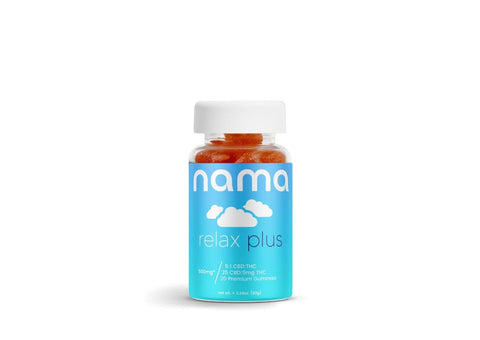
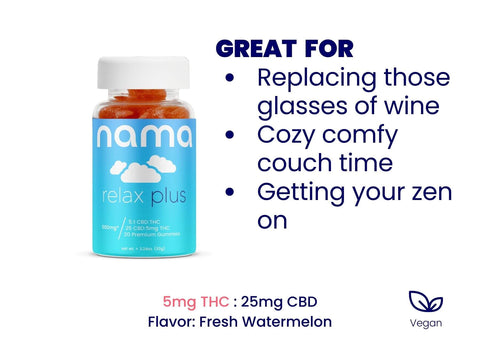
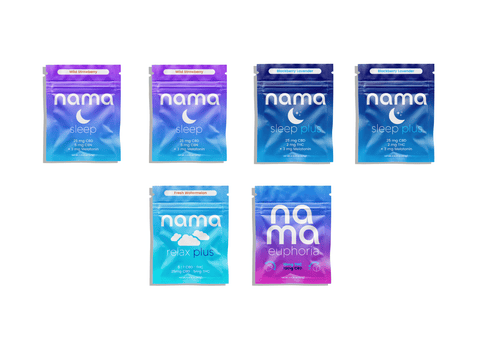
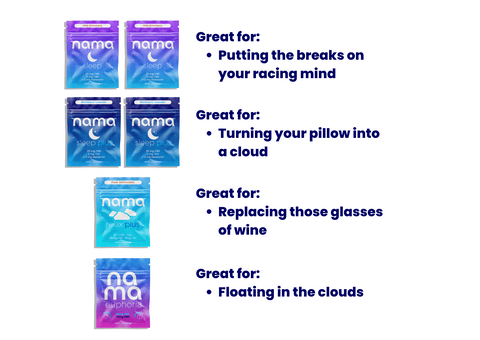


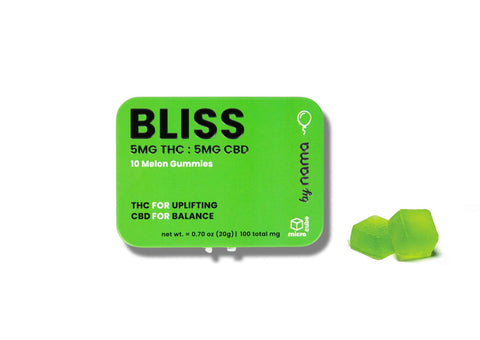
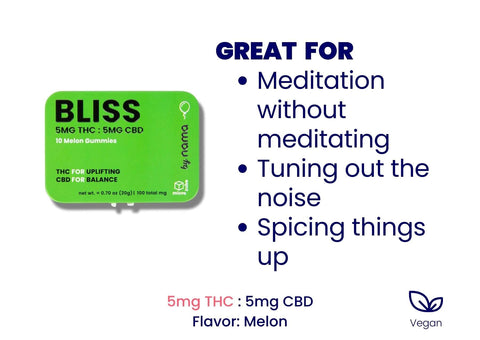
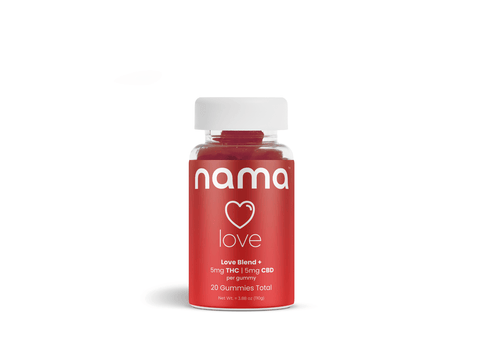
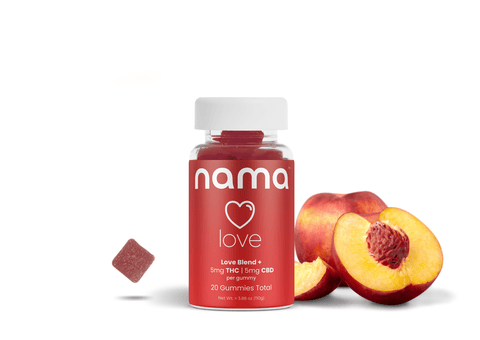
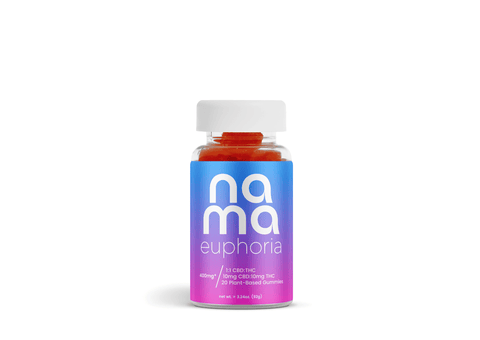
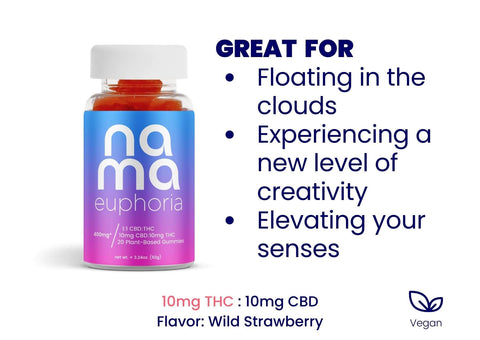







![Buzz Drops™ [THC Drink Drops]](http://www.namacbd.com/cdn/shop/files/nama_thc_buzz_drops.png?v=1711412866&width=480)
![Buzz Drops™ [THC Drink Drops]](http://www.namacbd.com/cdn/shop/files/buzz-drop-wine-comparison.png?v=1736882023&width=480)


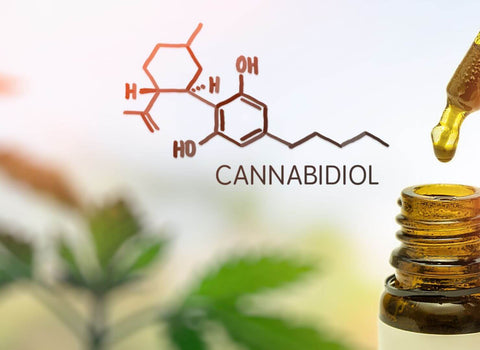
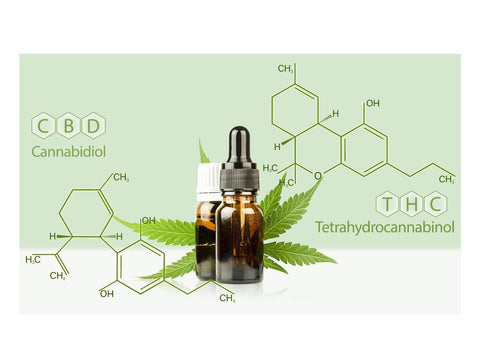

Comments (0)
There are no comments for this article. Be the first one to leave a message!